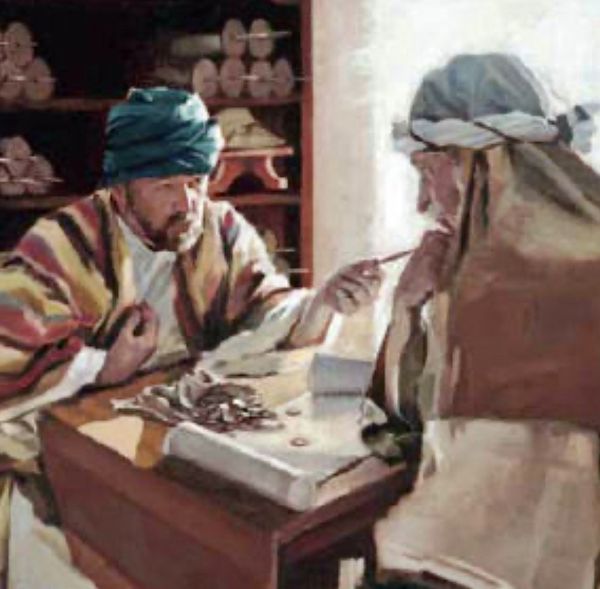Caught red-handed, before being dismissed, the dishonest administrator knows how to make friends with the same dishonest wealth.
Jesus, addressing his disciples, emphasises that the children of this world are more astute than the children of light.
Francis of Assisi is the one who knew how to make friends in Heaven with dishonest wealth, with transparent prudence.
He did not love it; in fact, he gave everything back publicly, marrying Lady Poverty.
But his merit was that he knew how to make use of earthly goods in a wise, evangelical way.
In the new path he undertook, he distinguished himself for that inner eye
that sees, in perspective, where earthly appetite leads.
He always recommended giving goods not to relatives, but to the poorest,
because in them one encounters the Poor One par excellence: Christ!
He urged his followers to make friends in heaven with dishonest wealth and to receive in return that imperishable wealth which smells of resurrection.
He, who had lived in luxury in his youth, knew well where blind love for possessions led.
The Franciscan Sources, a place of spiritual wealth, highlight this:
"Even on major feast days, when the opportunity arose, he used to go out begging.
For, he said, in God's poor, the words of the prophet are fulfilled: man has eaten the bread of Angels.
The bread of Angels is that which holy poverty gathers from door to door and which, asked for the love of God, is given for the love of God, at the suggestion of the holy Angels" (Sources 1129).
And in Clare's Rule, we see how she speaks of poverty to her sisters:
"This shall be your inheritance, which introduces you into the land of the living. Adhering totally to it, never desire, beloved sisters, to have anything else under heaven, for the love of our Lord Jesus Christ and his most holy Mother" (Sources 2795).
They knew, in fact, that the goods given to those in need are the cornerstone of following Jesus and his Holy Word made flesh.
Guided by the Gospel, therefore, they never wanted to follow two masters: God and wealth, but to clothe themselves solely in Christ, for more lasting goods.
Lighter, for Heaven's sake!
"Make friends for yourselves with unrighteous mammon, so that when it fails, they may receive you into the eternal tents"
«Make friends for yourselves with unrighteous mammon, so that when it fails, they may receive you into the eternal tents» (Lk 16:9)
Sunday 25th in O.T. (year C) (Lk 16:1-13)












